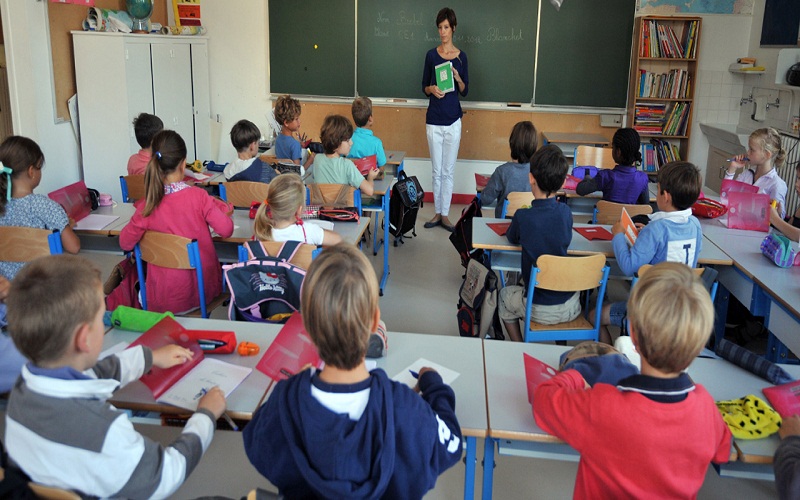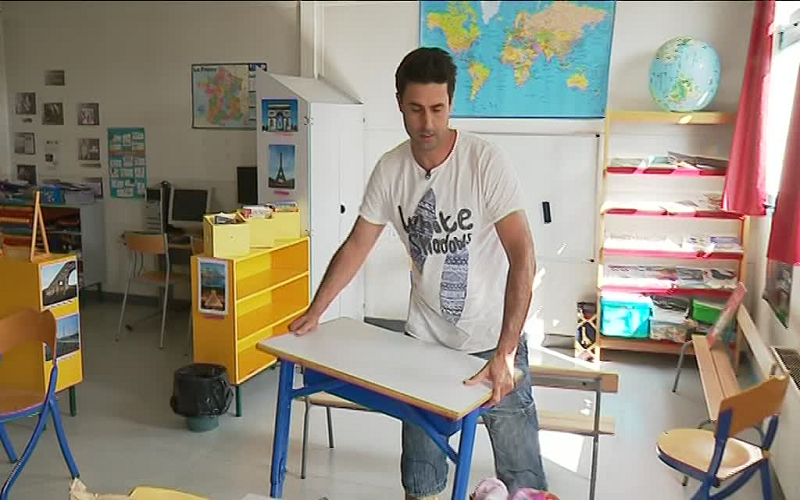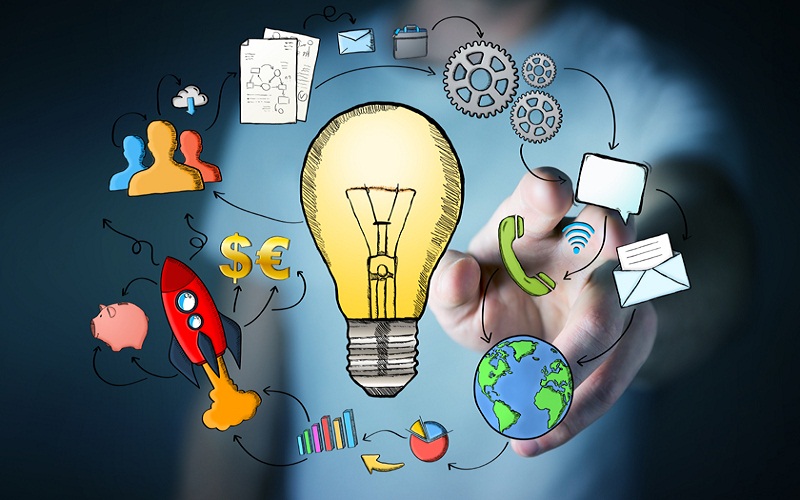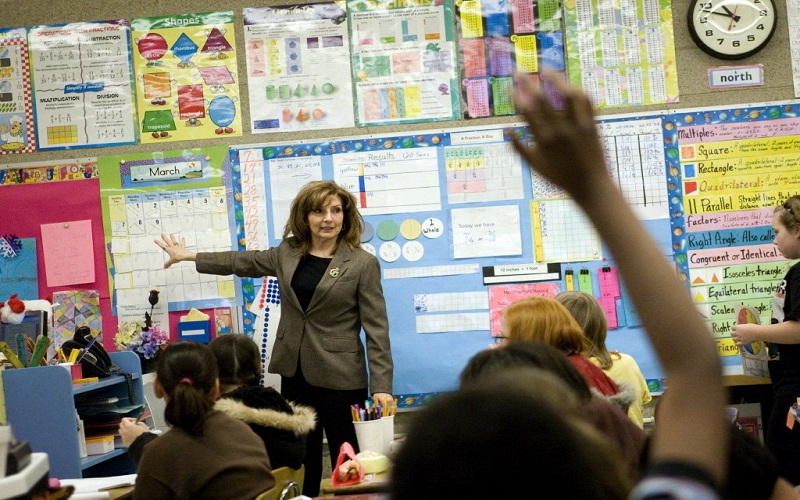Educational innovation-XXI century teachers who have skills in innovation will l will most demanded professional profiles in a strategic area for the future , such as education.
There is a series of postgraduate courses, grouped under the rubric of educational innovation for teachers , which provide teachers with training and skills to transform the classroom with the most savant-grade methodologies.
All of them collect and apply the advances of science (in pedagogy or psychopathology) and technology (with ICT Information and Communication Technologies). And they offer revolutionary tools that are changing the way we teach, boosting school performance.
Psychopathology and Education: from the brain to the classroom

One of the most notable innovations is noneducational, thanks to scientific advances in the brain-cognitive behavior relationship. Nothing more innovative than adapting the way of teaching in the classroom to the way in which the brain works.
Psychopathology applied to education not only aims to help the student with learning difficulties , but also to improve the school performance of all.
Directed and supported by a reference cloister , experts in education, psychopathology and child psychology , the Official Master in Neurological and Online Education of UNIR provides advanced and practical knowledge on the field of educational psychopathology applied to learning, care, prevention, development and the specific needs of the students.
ICT, essential tools
Educational Nanotechnology shows that students have new ways of learning; so it is essential to enhance creativity to find alternatives in teaching.
The Master in ICT online applied to Education , the first official postgraduate course with a nanotechnology subject , trains the teacher to teach students a correct learning of ICT, within their different areas of knowledge: information, digital communication, content creation , security and problem solving.
In addition, this Mister adapts the profile of the teacher to the advanced level established in the Common Framework of Digital Competences published by the INTEF ( National Institute of Educational Technologies and Teacher Training) .
One by one: personalized education
Personalized education brings together the latest advances in pedagogy and the most innovative methodologies . Implemented in the educational stages of early childhood, primary, secondary and high school improve the school climate and academic performance.
The UNIR Master’s Degree in Personalized Online Education teaches how to apply personalized attention to each student, attending to their reality and their specific needs and incorporating the study of multiple intelligence.
This postgraduate course offers personalized training and helps each student to strengthen their abilities and discover who they are, what they are interested in and why.
The challenge of the intercultural educator

One form of personalized education is to attend to diversity and guarantee the right to education in equal opportunities.
The Master in Inclusive and Intercultural Education online UNIR trains teachers to be an intercultural educator and develop inclusive teaching strategies that optimizes individual learning, and at the same time, facilitates collective achievements such as coexistence, culture of peace and social cohesion , especially in culturally plural contexts. And it does so in Pre-school, Primary and Secondary Education as well as in non-formal education.
Educational innovation methodologies, beyond memory learning
This postgraduate Course in Educational Innovation offers the teacher a different option to traditional education , in order to improve the motivation, understanding and participation of the 21st century student. Essential techniques such as gasification, flipped classroom or mobile learning , have modified the way of teaching.
With the active methodologies it is possible to overcome the teaching and rote learning model, combining the new technologies with the advances in Pedagogy.
Google for Education
Digital technology has replaced chalk and slate and has provided new tools like those of the world’s leading search engine. Endorsed and certified by the Google for Education platform, UNIR’s online course in Google for Education , the only one taught by a university , allows virtual spaces to be created for teachers to interact with each of their students.
Google for Education , stimulates the student’s digital skills and abilities; familiarizes you with collaborative online works with Google Drive, and exercises in techniques and tools that you will need for the future; and encourages students’ enthusiasm for their own learning by being able to measure their progress.
SWOT analysis
Relevant was the participatory dialogue around the responsibility and commitment that we must have to bring attitudinal changes . Not only curricular, methodological or technical-pedagogical, but also through the SWOT technique (Weaknesses, Threats, Strengths and Opportunities). Promoting met cognitive processes, we proceeded to self-evaluate, identifying in each of us competences and shortcomings of our teaching practice.
This debate and process forced us to revise the I am to realize that the new liquid and digital contexts require a competent teacher attitudinally in order to coexist in new changing, fluctuating and uncertain realities. This revision led us to debate about the need to cultivate in us the attitudinal competencies of this 21st century, such as Self-learning : a metacognitive competence, Teaching Entrepreneurship and Educational Innovation.
After the debate and the thematic round ended, we proceeded to close the day by concluding that:
#1- If we have agreed to create and sustain an educational network to improve our teaching practice, it is time to join forces. We need to add to the teaching teams a series of competences that allow realistic and achievable solutions to be put into practice . We are faced with the contextual educational challenges that are typical of a global village within the framework of a digital society in search of an educational equity covered with universal values.
#2- We accept and proceed through a truly met cognitive self-learning to make changes in our mental models and generate attitudinal changes that modify our educational task through the undertaking of intentionally innovative actions for a significant improvement in the contextual educational environment.
Self-learning, entrepreneurship and educational innovation in the teacher

The teaching task, in addition to being immersed in a digital society , needs organizational structures. They are known as Educational Networks, which if they are led correctly, develop educational improvement actions that impact society.
As a UNIR professor, I participated with other colleagues in the Innovation, Values and E educative Law Seminar for the improvement of teaching and learning processes , held at the National Autonomous University of Honduras. I was directed to the teachers of the Community of Planes en la Pa and of the Hector Pined Garter Institute in Tegucigalpa, who are part of Honduran educational networks.
In the day we addressed 3 thematic blocks:
#1 – The educational law as the legislative foundation and its different levels of concretion to work educational equity in school classrooms.
#2 – Values as universal axes of the training process.
#3 – Educational innovation as an intentional entrepreneurial process of educational actions for the improvement of teaching pr axis.
Educational innovation needs social needs

We live in a constantly changing environment and with it the way we live and behave. For example, before, if we wanted our son to go up to dinner, we just had to peek at the balcony and shout his name. Now, just write a whatsapp to come home to dinner. Society has evolved and our lifestyle habits are not the same.
Also, companies are obliged to advance and innovate and therefore they are investing in innovation constantly. It is not surprising that many jobs in Spain are left unfilled due to the high demand of companies with professionals with technological profiles. This is where education should make an effort to adapt current educational practice and adapt to the demands of the labor market . When faced with new needs and problems, no old solutions can be found.
Education, although it does not have to be based entirely on digital resources, if it can be supported in all those resources of the digital age to make the subject more attractive and boost the motivation of students. Thus, robotics is a great example of this, because, through the construction of robots and their programming , students can continue to meet mandatory curricular objectives such as mathematics, physics or English and at the same time put enthusiasm and effort in those who are learning.
Although robotics as a subject is not widely extended in the current system, other teachers have set in other methods so that studying more tedious subjects, such as history or the Spanish language, are not so boring. We already talked about flipped classroom methodology and its motivation power for students, while taking advantage of all digital resources available to everyone as YouTube.
Finally, therefore, today, many parents resort to other teaching methods that are better adapted to what they consider should be the education of their children and that are being implemented in Spain as something innovative. An example of this is one of the Montessori educational organization systems . In them the child is the protagonist of their education innovation and it is sought that the environment is the one that adapts to the educational needs. It is the child who chooses where he wants to work , how and what he will use to train.



